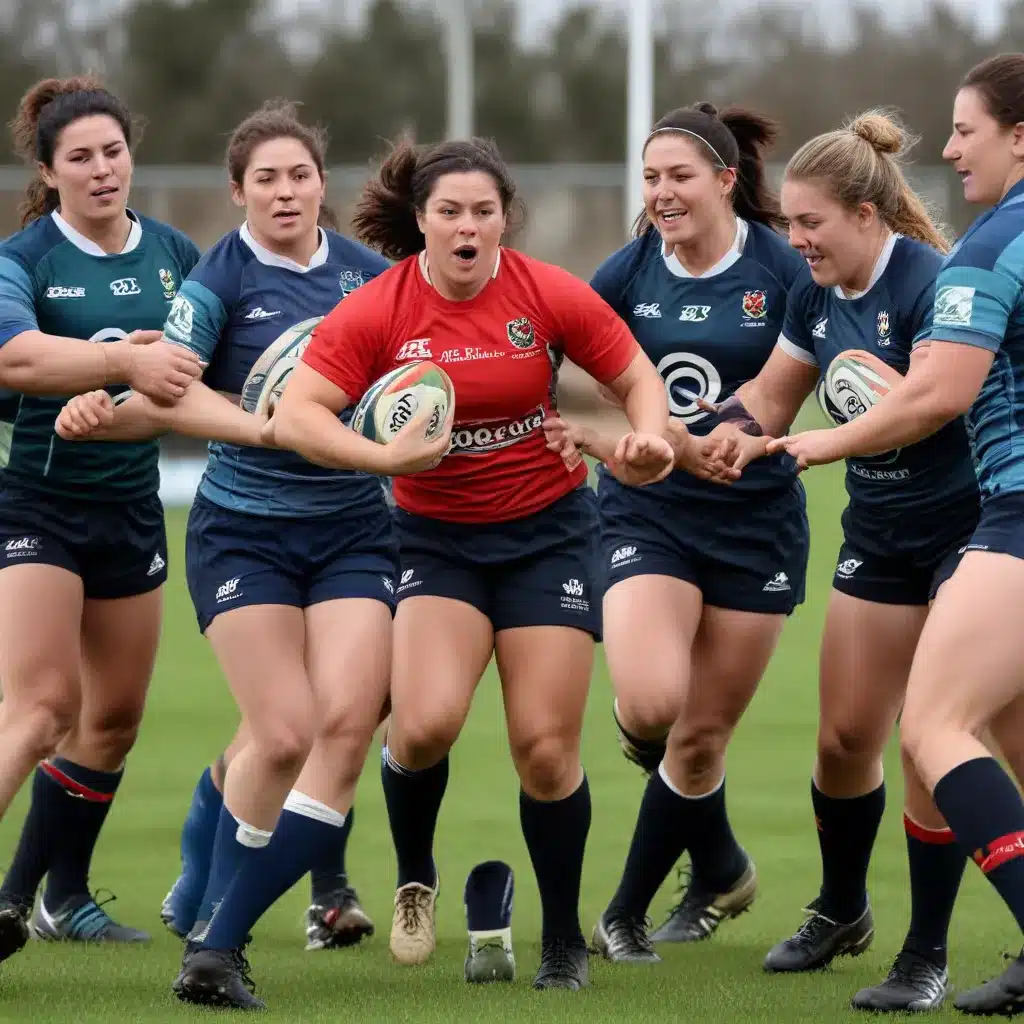
Women’s Participation in Rugby: Breaking Down Barriers
Rugby has traditionally been perceived as a male-dominated sport, but the tide is turning. Over the past decade, we’ve witnessed a remarkable surge in women’s participation, fueled by grassroots initiatives and a growing recognition of the immense value that female athletes bring to the game.
One of the most significant barriers women have faced in rugby is the lack of visibility and professional opportunities. For far too long, the media attention and funding have been disproportionately skewed toward the men’s game, leaving little room for women to gain the spotlight they deserve. However, organizations like World Rugby have made concerted efforts to address this imbalance, investing in women’s rugby development programs and actively promoting the women’s game globally.
At the community level, clubs and unions have also stepped up to create more welcoming environments for female players. From establishing dedicated women’s teams and leagues to offering coaching clinics and mentorship programs, these initiatives have empowered women to explore the sport without fear of discrimination or exclusion. As a result, we’ve seen a steadily increasing number of women taking up rugby, drawn by the camaraderie, physical challenge, and the sheer exhilaration of the game.
One particularly inspiring example is the rise of the Aberdeenshire RFC women’s team. Founded just a few years ago, the team has quickly become a force to be reckoned with, not only on the pitch but also in their unwavering commitment to fostering an inclusive and supportive community. Through collaborative training sessions, social events, and outreach programs, the Aberdeenshire women have cultivated a sense of belonging that transcends the sport itself, making it a true model for other clubs to emulate.
Empowering Underrepresented Groups in Rugby
While the progress in women’s rugby is heartening, there is still much work to be done in addressing the participation and representation of other underrepresented groups within the sport. People with disabilities, ethnic minorities, and individuals from lower socioeconomic backgrounds have often faced significant barriers to accessing and engaging with rugby.
Accessibility is a key concern, as many rugby facilities and programs may not be equipped to accommodate the needs of players with physical or cognitive disabilities. Clubs and unions are now spearheading initiatives to enhance accessibility, from offering adaptive equipment and specialized coaching to creating inclusive training environments that cater to diverse abilities.
Beyond physical accessibility, rugby must also address the systemic issues that have historically excluded certain communities from the sport. This means actively recruiting and supporting players from underrepresented backgrounds, as well as ensuring that coaching staff and leadership positions reflect the diversity of the player base.
One inspiring example of such efforts is the Aberdeenshire RFC’s partnership with local youth organizations to provide free rugby clinics and mentorship programs for underprivileged children. By removing financial barriers and cultivating a welcoming, supportive environment, the club has opened the door for young people who may have otherwise never had the opportunity to experience the joy and camaraderie of rugby.
Cultivating a Welcoming Rugby Community
Fostering a truly inclusive rugby community requires a holistic approach that extends beyond just the playing field. Clubs and unions must prioritize creating environments where all participants, regardless of their background or identity, feel respected, valued, and empowered to thrive.
This starts with the club culture, where leaders must actively promote inclusivity, diversity, and respect as core values. From ensuring inclusive language and imagery to providing diversity and sensitivity training for coaches and administrators, these efforts set the tone for the entire community.
Equally important is the development of mentorship and peer support programs that enable underrepresented players to connect with experienced mentors and build a network of support. These initiatives not only help newcomers navigate the sport but also inspire them to become advocates and role models for future generations.
The Aberdeenshire RFC has been at the forefront of this community-building effort, hosting regular social events, team-building activities, and collaborative training sessions that bring together players of all backgrounds. By fostering a sense of camaraderie and mutual understanding, the club has created an environment where everyone feels they belong, regardless of their gender, ethnicity, or ability level.
The Impact of Inclusive Rugby
As rugby continues to embrace inclusivity, the positive impact on the sport and the wider community is becoming increasingly evident. By actively breaking down barriers and empowering underrepresented groups, rugby is not only diversifying its participant base but also inspiring societal change.
Increased participation and engagement in rugby, particularly among women and underrepresented communities, have challenged long-held stereotypes and stigmas. As more diverse voices and stories emerge, the sport is shedding its historical reputation as an exclusive domain and becoming a true reflection of the communities it serves.
The ripple effects of this inclusive transformation extend far beyond the rugby pitch. By providing accessible and welcoming opportunities for individuals to participate in the sport, clubs and unions are cultivating a new generation of players, coaches, and leaders who embody the values of respect, teamwork, and sportsmanship. These individuals, in turn, become ambassadors for inclusivity, carrying the message of unity and acceptance into their personal and professional lives.
The Aberdeenshire RFC’s commitment to inclusive rugby is a testament to the power of this approach. Through their tireless efforts, the club has not only fostered a thriving rugby community but has also become a beacon of inspiration for other organizations seeking to create a more equitable and diverse future for the sport.
As we look ahead, the continued embrace of inclusivity in rugby will undoubtedly pave the way for a more vibrant, representative, and influential sport, one that truly reflects the diversity of the global community. By empowering women, amplifying underrepresented voices, and cultivating a welcoming environment, rugby can become a catalyst for positive change, inspiring generations to come.
